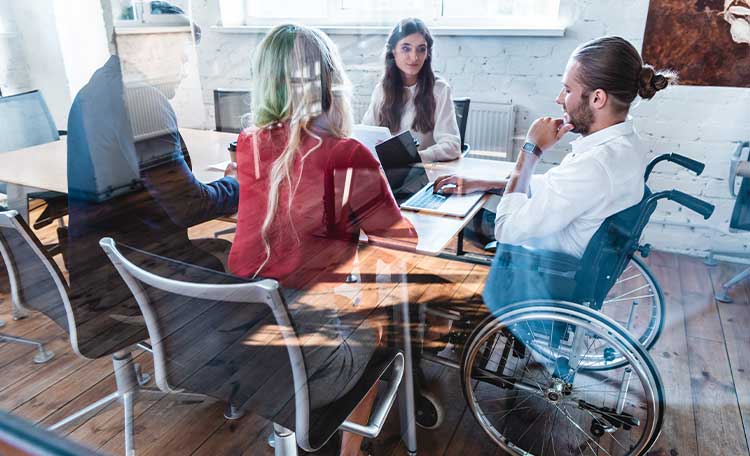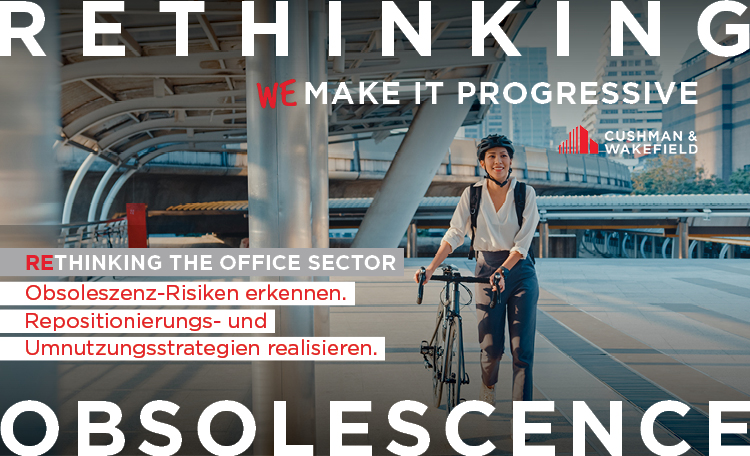Inclusive Cities: Spotlight on Germany
INTRODUCTION
HOW DIVERSE ARE OUR CITIES?
Our Inclusive Cities Barometer shows the inclusivity of 44 cities in the EMEA region - including Berlin, Hamburg, Frankfurt, Munich and Cologne.
Based on 110 examined economic, social, spatial and ecological indicators, the barometer provides a comprehensive insight into the diversity of cities. Quantifies social impact using more than 4,000 data points. And accompanies every single city on its way to even more inclusivity.
THE BAROMETER
THE HIGHLIGHTS
Tolerant, cosmopolitan and diverse – all German cities examined are considered social drivers. They are strong and experienced in integrating people and cultures and therefore have high economic clout and attract international investors and companies. Nevertheless, they could become even more diverse.
Frankfurt am Main: trade fair city with a heart for new cultures
- International trade fair venue: Frankfurt has been known as a trade fair venue for around 800 years. Today, the world's leading trade fairs for consumer goods, textiles, automobiles, literature, architecture and technology are based here, bringing people from all over the world together.
- Germany’s city of “super diversity”: Immigration has been normal in Frankfurt since the early Middle Ages. Today, in no other city do so many people from different cultures live as here.
- Transport hub to the whole world: Where the trade routes converge – in Frankfurt especially via the international airport – a place is created that is home to many industries, brings together the global economy, combines a lot of specialist knowledge and offers the optimal infrastructure for international exchange.
Cologne: Colorful and tolerant thanks to the “live and let live” motto
- Numerous nations: Cologne is good at welcoming new people and integrating their traditions and talents and using them for its own benefit. Around 40 percent of Cologne residents have a migrant background - and come from a total of 180 different nations.
- Interculturally professional: Cologne's economy scores with intercultural competence. Many large international players such as Ford and Bayer work here - companies from 160 countries are represented in total. Accordingly, the interest of foreign investors increases when it is clear that employees, in addition to their language skills, also have the cultural sensitivity required to make collaboration efficient and successful.
- Strong LGBTIQ community: “Live and let live” – the people of Cologne have always lived by this principle. Tolerance has a tradition. And it is therefore not surprising that, according to a study by the city of Cologne, one in ten people who live in Cologne belong to the LGBTIQ scene and can live their orientation openly. This holds enormous creative and innovative potential for the development of the city.
Berlin: Melting Pot of cultures
- “Living Archive”: Berlin's growth, dynamism and creative power have been based on the impulses provided by immigrants and migrant cultures for centuries – a total of almost 190 nations live here. This diversity is a powerful driver of the city's cultural and economic innovations.
- Diversity Charter: Berlin joined the Diversity Charter initiative in 2007. The city is thus clearly committed to including and promoting diversity in business and the world of work – for a better pool of skilled workers and more innovative solutions and products.
- Creative start-up capital: In no other German city are so many start-ups launched as in Berlin. And not just any. There are already over 20 unicorns in the capital – also thanks to the optimal start-up ecosystem that Berlin promotes and constantly develops with many start-up centers and optimal starting conditions.
Munich: cosmopolitan economic and educational metropolis
- Educated and large international pool of skilled workers: Munich's elite universities TUM and LMU cover a wide range of internationally recognized majors. In no other German city the proportion of academics is as high as here – an enormous pool of international skilled workers.
- Globally networked: There are numerous international business communities in Munich with over 90 business clubs, chambers of commerce and networks that promote exchange. In addition, 16 international schools and more than 70 bilingual kindergartens promote diversity at an early stage.
- Pioneer in economic innovations: Munich is Germany's number 1 innovation location. Universities, companies from home and abroad and diverse teams work together to advance cutting-edge research, innovative products and future-oriented solutions.
Hamburg: Germany’s gateway to the world
- Cosmopolitan world port tradition: The port of Hamburg is one of the largest in Europe with trade relations all over the world. The port operator's workforce is correspondingly diverse, consisting of 40 nations, with a balanced gender ratio and integrating numerous people with disabilities.
- Logistics that connects the world: Hamburg's port handles more than 100 million tons of commercial goods every year. Every day the city welcomes people and goods from all over the world.
- Barrier-free with a system: The city of Hamburg has set itself the goal of enabling complete accessibility in all areas of life – for example in transport or living. There is now also a digital city map that shows barrier-free leisure, cultural, sports and shopping options.
HOW WE CAN HELP
Global Insights and Resources
Cushman & Wakefield is dedicated to supporting investors, developers, and occupiers in maximising social value through their real estate endeavours. To learn more about how we can assist you in your journey towards creating inclusive urban environments, contact us today.
Insights

#CWINSPIREINCLUSION – How can the real estate industry become more inclusive? The theme of this year’s International Women’s Day calls for us to work together to create a more inclusive world.

